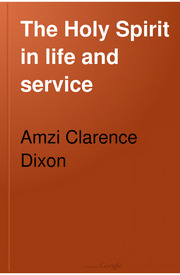Conservative Version Reverse Interlinear helps the English native speaker understand some of the more minute information communicated via the Greek.
Foreword
Greek is not English
One of the strengths of Greek is that it is an inflected language. Therefore, most Greek words contain more information than English words do. This is one reason why I added the supplemental study aids made available by the Greek scholar Maurice A. Robinson to the text of this translation format. These aids are given to help compensate for the unavoidable loss of information that results when translating from Greek to English. Consider the simple word “it”. In English we use the word “it” to refer to animals and things. However, in the Greek language animals and things are often assigned a gender. For example, the Greek word for temple is masculine. Now consider this familiar translation of some words that Jesus said: “Destroy this temple, and in three days I will raise it up” (John 2:19; KJV). Yet literally he said “I will raise him up,” because the Greek pronoun translated “it” in this verse is masculine. And since Jesus is also masculine, the statement could be interpreted as referring either to himself or the temple. The false witnesses at the trial of Jesus (as is typical of the enemies of God and his servants) added to his words, saying, “We heard him say, ‘I will destroy this temple that is made with hands, and in three days I will build another, not made with hands” (Mark 14:58; KJV).
Another example of lost information resulting from typical English translations can be seen in two parables that Jesus gave about rejoicing over lost possessions. The first concerns a man who lost a sheep. Here is what Jesus said the man did when he found it: “…he layeth it on his shoulders, rejoicing. And when he cometh home, he calleth together his friends and neighbours, saying unto them, Rejoice with me; for I have found my sheep which was lost” (Luke 15:6; KJV). Then Jesus tells of a woman who lost a coin. Here is what Jesus said she did when she found it: “…she calleth her friends and her neighbours together, saying, Rejoice with me; for I have found the piece which I had lost” (Luke 15:9; KJV). In the original Greek the words for “friends” and “neighbors” are masculine in the first example, but feminine in the second one. Thus, revealing that the man called his men friends and neighbors, but the woman called her women friends and neighbors. By examining the Greek code that I included you can better appreciate such information, which is not usually revealed because of the limitations of the English language.
Post Views: 90
Advertisement

Dixon The Holy Spirit in life and service is a 19 chapter work on the Holy Spirit and various of His relationships and how He works. Chapters on the Personality and Deity of the Holy Spirit, His relationship with young people, the Bible, Bible study, the Evangelist, the Sunday School Teacher, the Pastor, the Christian worker, the purity of the Mind, missions, Christ, etc.
PDF: Dixon The Holy Spirit in life and service
theWord: Dixon The Holy Spirit in life and service
MySword: Dixon The Holy Spirit in life and service
eSword: Dixon The Holy Spirit in life and service

Scofield Plain Papers on the Holy Spirit is a work of 5 chapters by the editor of the Scofield Bible, C.I. Scofield. He was a great biblical scholar. I am presenting this work in various formats.
PDF: Scofield Plain Papers on the Holy Spirit
theWord: Scofield Plain Papers on the Holy Spirit
eSword: Scofield Plain Papers on the Holy Spirit
MySword: Scofield Plain Papers on the Holy Spirit


